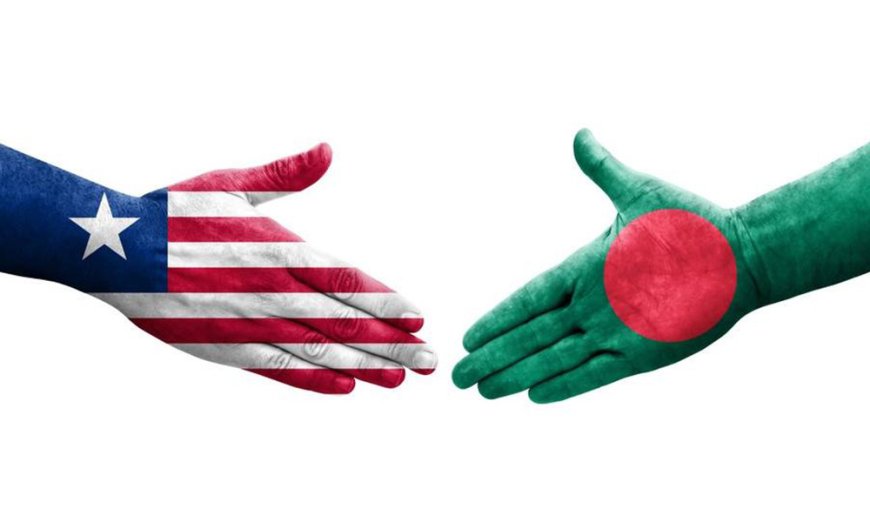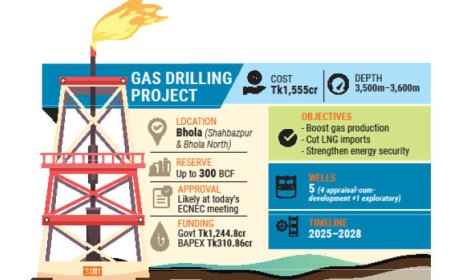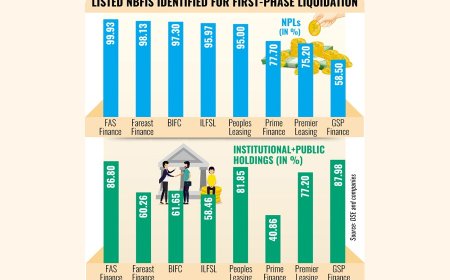Govt takes steps to narrow trade gap with US
Bangladesh exports over $8 billion worth of goods to the United States each year.

Bangladesh Moves to Narrow Trade Imbalance with United States
Bangladesh exports goods worth over $8 billion to the United States each year, making it the country's largest single export destination. In contrast, imports from the US stand at just over $2 billion, resulting in a significant trade imbalance. In response, the Trump administration imposed steep tariffs on Bangladeshi goods, raising concerns among exporters about losing competitiveness in the American market.
To address this imbalance, the Bangladesh government has implemented several initiatives. The National Board of Revenue (NBR) has granted tariff concessions on more than 100 US-origin products. Additionally, Bangladesh has signed an agreement to import 700,000 tonnes of high-grade wheat from the US. In a strategic move, the government has also placed an order for 25 Boeing aircraft, aimed at easing tariff-related pressures. Plans are also underway to ramp up imports of US soybean oil and cotton.
According to NBR officials, the US exports a variety of products to Bangladesh, including agricultural goods (such as grains, seeds, soybeans, wheat, corn, and cotton), machinery and vehicles, petroleum products, and industrial metals like iron and steel. Conversely, Bangladesh mainly ships ready-made garments, textiles, footwear, and select agricultural products to the US market.
In ongoing negotiations to reduce tariffs—some of which reach up to 35% on Bangladeshi goods—the government included duty exemptions for over 100 US-origin products in the national budget. Ministry of Commerce officials confirmed that the Boeing aircraft purchase is part of a broader strategy aimed at reciprocal tariff concessions. The wheat import deal, originally set at 700,000 tonnes per year, forms another key pillar of this strategy.
A draft tariff agreement is currently in the works. Two rounds of face-to-face talks have already taken place in Washington, supplemented by multiple virtual discussions. Following inter-ministerial consultations and stakeholder engagement, Bangladesh submitted its formal position to the US on July 23. A high-level meeting is scheduled before August 1 at the office of the US Trade Representative (USTR), where Bangladesh will be represented by the Trade Advisor, Security Advisor, and Commerce Secretary.
Commerce Secretary Mahbubur Rahman noted that Bangladesh’s Boeing order aligns with a regional trend—India and Vietnam have each ordered 100 aircraft, while Indonesia has ordered 50. While delivery timelines will depend on Boeing’s production schedule, a few aircraft may be delivered within two years to expand the Biman Bangladesh Airlines fleet. Notably, this procurement plan predates the current trade negotiations; the original order of 14 aircraft was later expanded to 25 to bolster Bangladesh's negotiating position.
Rahman also confirmed the wheat import deal and added that private sector firms are actively exploring soybean oil imports. Meetings between Bangladeshi importers and US soybean exporters are expected to take place soon. Cotton imports from the US have also resumed, though at a lower volume. These combined measures are expected to gradually increase Bangladesh’s imports from the United States, helping to narrow the trade gap over time.
What's Your Reaction?






















































































